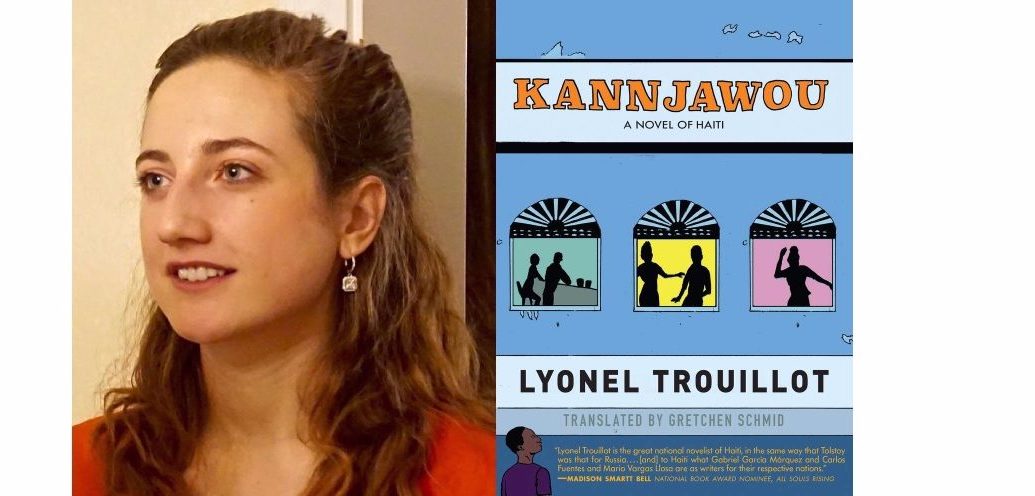An Interview with Gretchen Schmid, Albertine-Prize Nominated Translator

An interview with Gretchen Schmid, translator of Kannjawou (Schaffner Press / Actes Sud) by Lyonnel Trouillot, nominated for the Albertine Prize, an annual reader’s choice award that recognizes American readers’ favorite work of contemporary Francophone fiction that has been translated into English and published in the US within the preceding calendar year. Learn more at albertine.com/vote.
Why did you choose to translate Kannjawou?
I discovered Kannjawou during my year working at the French Publishers’ Agency, which is the New York office of the BIEF. My colleague Alice Tassel had fallen in love with beauty and power of the book and was trying to find the perfect American publisher for it. I suggested that she send it to Tim Schaffner of Schaffner Press, whom I’d met at BEA in Chicago and who I knew had an interest in translated and international literature. Tim was intrigued and asked for an English sample, so I translated a few pages for him and volunteered to translate the rest if he decided to buy it. Luckily, he did! I feel incredibly fortunate to have had the chance to translate Trouillot, who’s one of Haiti’s leading writers.
What did you absolutely want to keep and convey in your translation?
Trouillot is also a poet, and he writes with a distinctive lilting rhythm that is incredibly powerful and gorgeous. Translating this lyricism into English was both the most challenging part of translating this book for me and the most important. I did my best—I hope I succeeded!
Was there any specific segment you struggled with, things you were not able to keep in English?
One of the main characters, who’s the sort of doyenne of the Port-au-Prince neighborhood in which the book takes place, is called “Man Jeanne” in the original. I generally don’t change names in my translations, but of course “Man” in English connotes a man, not a wise old woman, and I thought it would be confusing to readers to leave it as is. I consulted Linda Coverdale’s excellent translation of an earlier novel of Trouillot’s, Children of Heroes, and discovered that she had chosen to use “Mam” when faced with the same problem. I followed her lead and did the same.
What did you find the most challenging in translating this book?
See my answer above about what I wanted to keep and convey.
How was the editing process with the author and publisher?
Pretty light-handed, actually! I asked the author a few questions about his intentions in certain passages, and Tim queried some passages and words that didn’t seem quite right to him in my first draft, but otherwise I think I got off easy with the editing process.
Do you find important that the translator takes liberties with the text while translating a book? If yes, what kind of liberties?
Absolutely. I don’t think translated texts should be awkward or difficult to read in any way, unless of course that was the intention of the original text; making it sound natural in the translated version is very important to me. For example, I often split long French sentences into two, or replace commas with em-dashes or semicolons, to avoid run-ons sentences in English.

